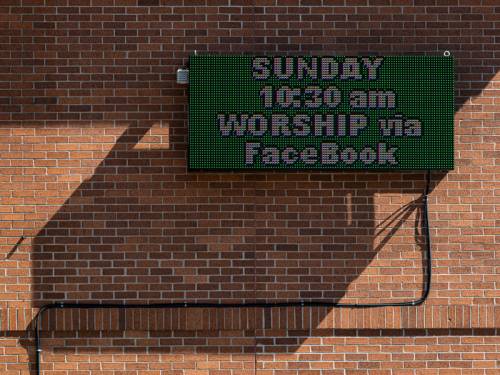What do you want to accomplish?
By Richard Hong | Presbyterians Today
 Technology is a tool. If you want to move your church forward, you need to invest in the right tools. And you only know what the right tools are if you know what you want to achieve. So, the first question that should be addressed in any discussion on the use of technology in the church is, “What are we trying to accomplish?” Without a clear, solid answer to that question, technology — no matter how good or how fancy — will not help.
Technology is a tool. If you want to move your church forward, you need to invest in the right tools. And you only know what the right tools are if you know what you want to achieve. So, the first question that should be addressed in any discussion on the use of technology in the church is, “What are we trying to accomplish?” Without a clear, solid answer to that question, technology — no matter how good or how fancy — will not help.
In my first career working in the field of technology, I dealt with huge corporations that struggled with using first-generation PCs. My company specialized in laboratory automation. At the time, records of laboratory experiments were being kept in notebooks. When we were brought in by a client, the first question my team asked was, “Why do you want to computerize?” The answer that we dreaded always came: We want to computerize because our paper records are a mess and we hope the computer will fix that. But be it a lab or a church, technology won’t fix underlying problems (such as disorganized record-keeping) any more than a photocopier will correct typos in a document. Technology, however, can help a church move forward if that church knows exactly what it wants to accomplish. Knowing what is to be accomplished also cuts back on the sense of being “technically” overwhelmed with all that is available.
To help, there are three areas of the church where technology can be used: administration, outreach and worship. In each area, ask what you want to accomplish and what can be done more efficiently. For example, a Facebook post can be more efficient than putting flyers in stores. An email sent to the congregation doesn’t have to be stuffed into an envelope, stamped and mailed. Showing a mission video in worship allows people to experience what they would otherwise have to travel to see.
When you have an idea of what your church wants to accomplish, now is the time to seek out the right tools. One caveat is this: Technology should not be seen as an expense. It should be seen as an investment. This is important to remember because churches often seek tools that are free — free email newsletter templates, websites and so forth. But free tools are often not the most cost-effective in the long run. That does not mean we should break the church budget with the latest and greatest technology, but we can seek to procure tools at the lowest possible cost. A site that can help churches — and one that many are turning to — is techsoup.org.
TechSoup is an organization through which many major software publishers donate software to nonprofits. The prices are generally excellent. As of this writing, the standard desktop Microsoft Office suite is $39. QuickBooks Desktop is $60. Norton Security is $12. Signing up is straightforward, except in the case of older churches. The church I serve was founded in 1860. That makes it older than the IRS. As a result, we do not have a specific 501(c)3 tax-exempt determination letter; we received a “blanket” determination letter nearly 60 years ago. If this is the case for your church, you can sign up as an “affiliate” organization of the PC(USA). The Employer Identification Number of the PC(USA) is 23-6393377 (this number, unlike a Social Security number, is publicly available).
Once approved, you can purchase software through their website. In some cases, the process used by TechSoup is more complex. You pay them an “administrative fee” that allows you to then access deep discounts from a provider. For example, if you pay TechSoup an administrative fee of $65, you can then purchase up to nine annual Zoom licenses at a discount of 50% (a savings of $75 per license). This does not save much on the first license, but it adds up with subsequent licenses. We needed five Zoom licenses when the pandemic forced us to close the building, and TechSoup saved us over $300 on them. Make sure you understand what you are paying for.
But remember, before purchasing any technology for your church, be very clear what you want to accomplish and then embrace a new way of doing ministry. The goal is not to become an expert in technology, but to leverage what is available so you can be more effective and expand the reach of your creativity as you serve God’s children.
Richard Hong is the pastor of First Presbyterian Church of Englewood, New Jersey. Hong’s areas of interest are church technology, leadership and church growth. If there’s a particular topic you’d like for him to address, contact him at rich@englewoodpres.org.



No comments:
Post a Comment